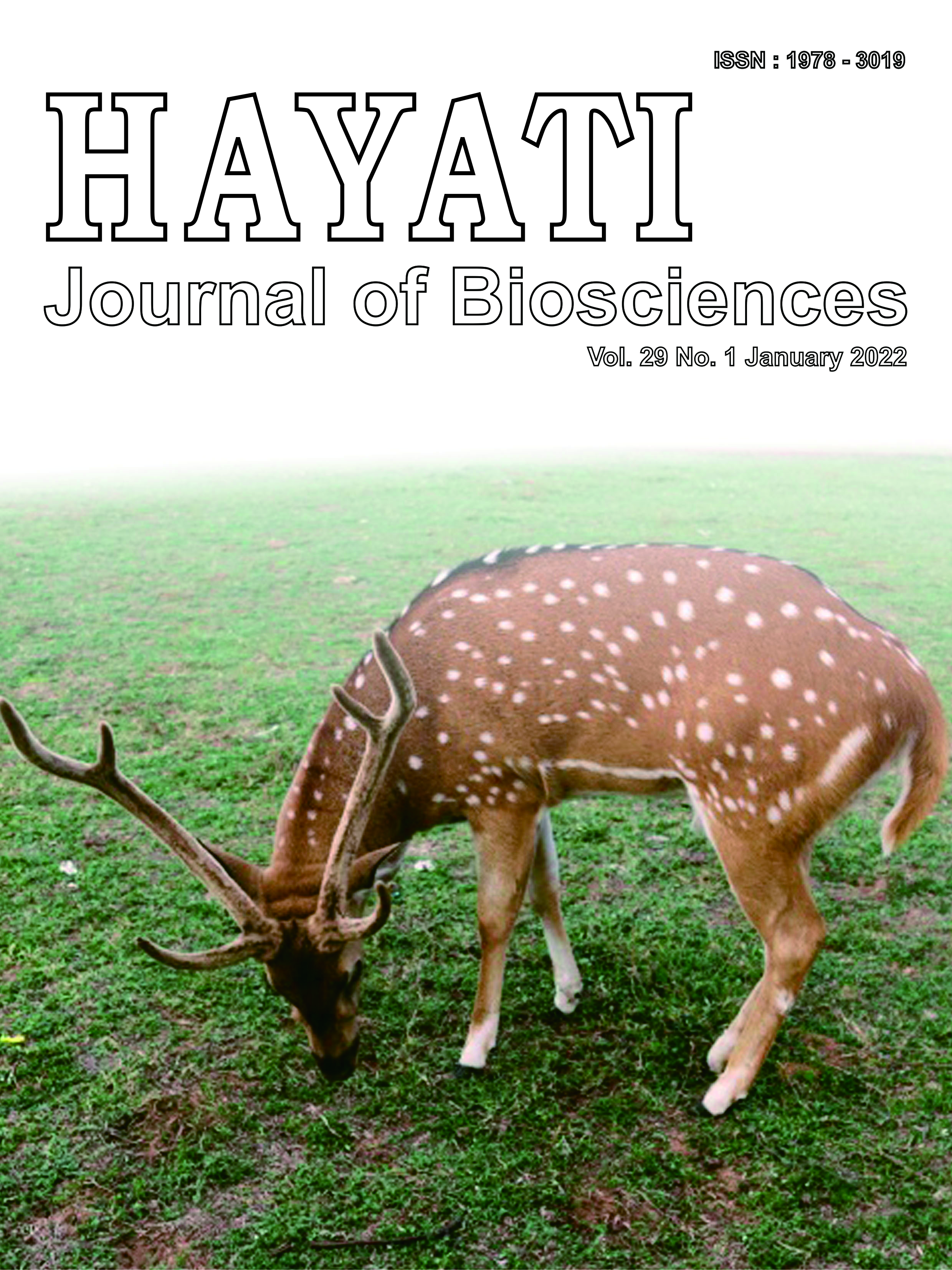Application of Environmental DNA (eDNA) Metabarcoding Method to Identify Threatened Sulawesi Mammal Based on 12S rRNA Gene
Abstract
Species detection and identification is a crucial steps in biodiversity assessment. Traditional methods are often invasive and resource intensive. The number of studies demonstrating successful of eDNA metabarcoding approach in species identification has increased rapidly in recent years. Some of large terrestrial mammals have reportedly utilize natural salt licks as a source of minerals in the diet and its genetic material left in the environment can be used to identify species from this site. An eDNA metabarcoding protocol had been carried out to identify Sulawesi mammals from Adudu natural salt-licks, Nantu Wildlife Reserve, Gorontalo. Environmental DNA were extracted from water samples, Amplicon libraries were prepared by PCR amplification and Illumina MiSeq high throughput sequencing. Reads processing and taxonomic assignment carried out in two bioinformatics packages, PipeCraft-1.0 and OBITools-2.11. Two endangered Sulawesi mammals species had been identified, i.e. lowland anoa (Bubalus depressicornis) and babirusa (Babyrousa babyrussa). The accuracy of mammal species identification using eDNA metabarcoding is affected by rigorous experimental procedures, DNA marker reliability, and availability of reference sequence database.
Downloads
Copyright (c) 2022 Bambang Suryobroto, Ahmad Abdul Jabbar, Puji Rianti

This work is licensed under a Creative Commons Attribution-NonCommercial 4.0 International License.
HAYATI J Biosci is an open access journal and the article's license is CC-BY-NC. This license lets others distribute, remix, tweak, and build upon author's work, as long as they credit the original creation. Authors retain copyright and grant the journal/publisher non exclusive publishing rights with the work simultaneously licensed under a https://creativecommons.org/

























.png) IPB University
IPB University Department of Biology
Department of Biology The Indonesian Biological Society
The Indonesian Biological Society 

